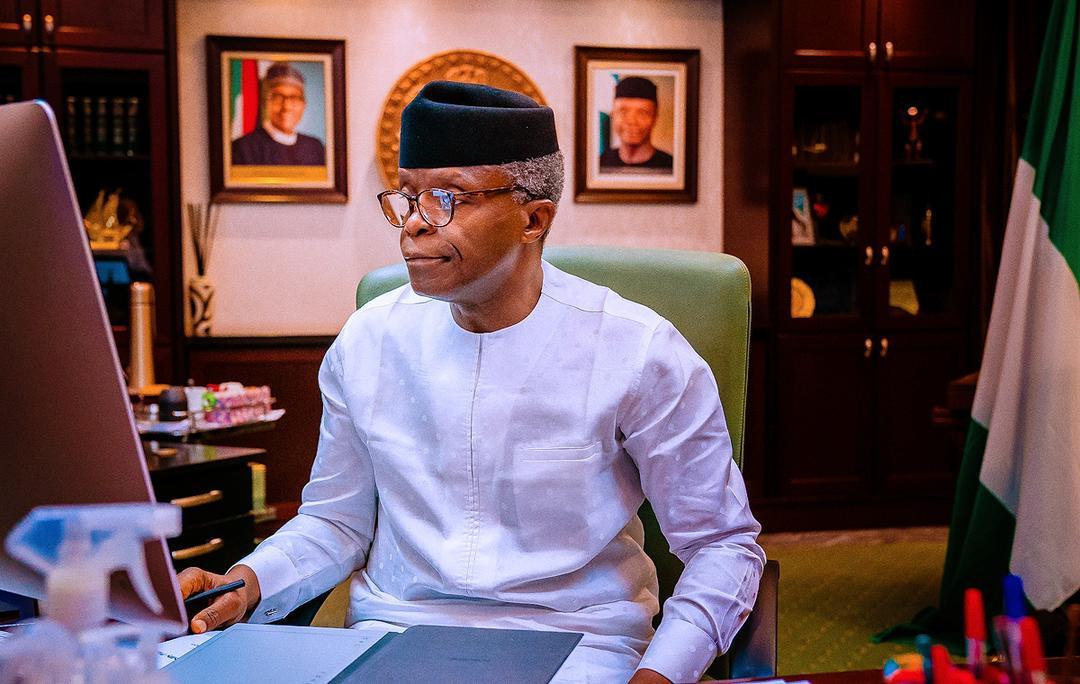NEWS
Experts prove Osinbajo wrong on ‘artificially low’ exchange rate

On Monday, Nigeria’s Vice-President Yemi Osinbajo called for an official rate that is reflective of market reality.
According to the Vice-President, the current dual exchange rates allowed for arbitrage and blocked inflow/supply of dollars from investors.
Osinbajo said this on Monday in Abuja at the opening of a two-day Mid-Term Ministerial Performance Review Retreat organised to assess progress made towards the achievement of the nine key priorities of the Buhari regime. Experts, however, differed on the vice-president’s opinion.
This is as he said the country could not get new dollars into the system, where the exchange rate was artificially low.
The Vice President said the artificially low exchange rate was deterring investors from bringing foreign exchange into the country.
He said, “As for the exchange rate, I think we need to move our rates to be as reflective of the market as possible. This, in my own respective view, is the only way to improve supply.
“We can’t get new dollars into the system, where the exchange rate is artificially low. And everyone knows by how much our reserves can grow. I’m convinced that the demand management strategy currently being adopted by the CBN needs a rethink, and that is just my view.
“Anyway, all those are issues that when the CBN governor has time to address, he will be able to address in full.”
Osinbajo also suggested that the central bank was competing with the fiscal side of the economy, which includes the ministries, departments, and agencies of government.
He explained, “There must be synergy between the fiscal and the monetary authority. We must be able to deal with the synergy; we must handle the synergy between the monetary authority, the CBN, and the fiscal side.
“Sometimes, it appears that there is competition, especially on the fiscal side. If you look at some of the interventions, you will find that those interventions are interventions that should be managed by ministries.
“The Ministry of Industry, trade and investment should handle MSME interventions, and we should know what the CBN is doing.
“In other words, if the CBN is intervening in the MSME sector; it should be with the full cooperation and consent of the ministry of industry.
“Sometimes you will get people who are benefiting more than once because we simply have no line of sight on what is going on, on one side.”
Speaking on surviving the economic challenges of 2020, Osinbajo said that Buhari deserved the credit for providing steady leadership through the crisis.
He said, “Let me say on the whole that we have been able to weather the storm of a very, very serious economic challenge.
“I think that is based largely on the steady and stable leadership we received from the president. I think if Mr President had panicked in that period, we would have had a lot of difficulties, perhaps we would be in a much worse situation.
“He deserves the commendation for providing that steady hand when that was required.”
Osinbajo said anything was possible if Nigeria and Nigerians were willing to work together for the same objective.
However, experts who spoke to our correspondents offered different opinions.
A professor of capital market at the Nasarawa State University Keffi, Uche Uwaleke, said, the implications of devaluing the naira now were quite scary.
He said, “The first casualty will be the 2022 Appropriation Bill. It means the 2022 budget, which is predicated on N410.15 per dollar is dead on arrival.
“The Vice President obviously means well. But this statement is capable of triggering panic buying and speculation in the forex market (official and parallel) and further complicating things for the CBN.
“No doubt, devaluation will force down the volume of imports and reduce the pressure in the forex market temporarily. But have we thought of the impact it would have on pump price of fuel and the multiplier effects?
“How about the knock-on with regard to inflation and interest rates especially at a time when inflation rate remains elevated? Is high inflation rate not inimical to investments whether local or foreign?”
He said the argument that naira devaluation would incentivise foreign investors remained to be seen as other factors such as insecurity equally play a part.
The naira, he added, had suffered several devaluations in recent past.
He said, “It has neither solved the fundamental problem of helping to diversify the export base nor curbed unbridled imports. Doing so yet again will not change anything. Rather, it is a recipe for high poverty and unemployment levels.

















